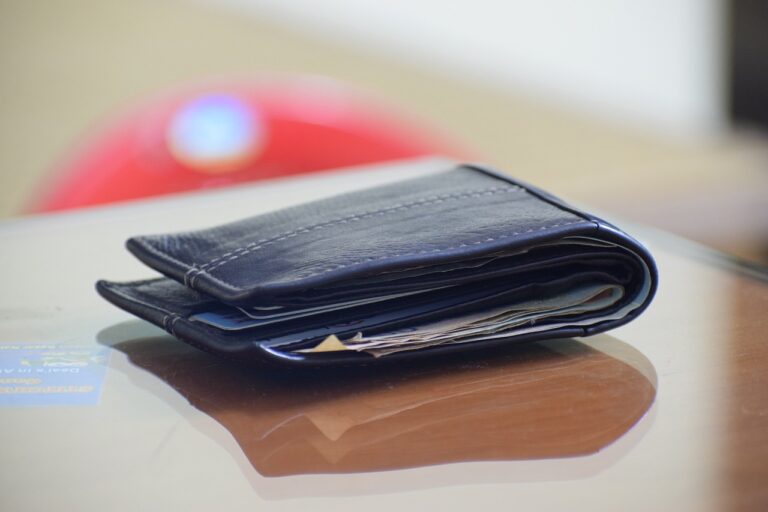The Evolution of Sustainable Fashion: Innovations in Eco-Friendly Textiles
In recent years, there has been a growing awareness of the environmental impact of the fashion industry. From water pollution to textile waste, the traditional fashion industry has been criticized for its unsustainable practices. As a result, many fashion brands and designers are turning to eco-friendly textiles and sustainable practices to minimize their environmental footprint. In this article, we will explore the evolution of sustainable fashion and the innovations in eco-friendly textiles that are shaping the future of the industry.
The Rise of Sustainable Fashion
With the rise of fast fashion and disposable clothing, the fashion industry has become one of the biggest polluters in the world. From toxic chemicals used in dyeing fabrics to the massive amounts of water and energy consumed in the production process, the traditional fashion industry has a significant impact on the environment. However, in recent years, there has been a shift towards more sustainable and eco-friendly practices in the fashion industry.
Consumers are becoming more conscious of the environmental impact of their purchasing decisions and are demanding transparency and accountability from fashion brands. As a result, many brands are incorporating sustainable practices into their business models, from using organic and recycled materials to reducing waste and energy consumption in their production processes.
Key Innovations in Eco-Friendly Textiles
One of the key drivers of sustainable fashion is the development of eco-friendly textiles that minimize the environmental impact of clothing production. Innovations in textile technology have led to the creation of fabrics that are made from organic, recycled, and sustainable materials. These eco-friendly textiles offer a more sustainable alternative to traditional fabrics, such as cotton and polyester, which require intensive farming practices and are derived from fossil fuels.
1. Organic Cotton
Organic cotton is one of the most popular eco-friendly textiles used in sustainable fashion. Unlike conventional cotton, which is grown using pesticides and synthetic fertilizers, organic cotton is grown using natural methods that do not harm the environment. Organic cotton is free from harmful chemicals and is biodegradable, making it a more sustainable choice for clothing production.
2. Recycled Polyester
Recycled polyester is another eco-friendly textile that is gaining popularity in sustainable fashion. Recycled polyester is made from post-consumer plastic bottles and other plastic waste, reducing the amount of plastic that ends up in landfills or oceans. By using recycled polyester, fashion brands can reduce their carbon footprint and help to create a more circular economy for textiles.
3. Tencel
Tencel, also known as lyocell, is a sustainable fabric made from wood pulp. Tencel is produced using a closed-loop process that recycles water and solvents, making it a more eco-friendly alternative to traditional fabrics. Tencel is soft, breathable, and biodegradable, making it a popular choice for eco-friendly clothing brands.
4. Hemp
Hemp is a versatile and sustainable textile that is derived from the hemp plant. Hemp requires less water and pesticides to grow compared to traditional crops like cotton, making it a more sustainable choice for clothing production. Hemp is also biodegradable and has natural antibacterial properties, making it an ideal fabric for eco-friendly clothing.
5. Pix
Pix is a innovative textile made from pineapple leaf fibers. Pix is a byproduct of the pineapple industry and provides an eco-friendly alternative to traditional leather. Pix is cruelty-free, biodegradable, and sustainable, making it a popular choice for vegan and eco-conscious fashion brands.
The Future of Sustainable Fashion
As the demand for sustainable fashion continues to grow, fashion brands and designers are exploring new ways to reduce their environmental impact and embrace eco-friendly practices. From incorporating circular design principles to using innovative textiles made from sustainable materials, the future of sustainable fashion is bright and full of possibilities.
By prioritizing sustainability and environmental responsibility, the fashion industry can help to create a more sustainable future for the planet and future generations.
FAQs
Q: What is sustainable fashion?
A: Sustainable fashion refers to clothing that is produced using eco-friendly and socially responsible practices. Sustainable fashion aims to minimize the environmental impact of clothing production and promote ethical labor practices throughout the supply chain.
Q: Why is sustainable fashion important?
A: Sustainable fashion is important because the traditional fashion industry has a significant impact on the environment, from water pollution to textile waste. By embracing sustainable practices and eco-friendly textiles, the fashion industry can reduce its environmental footprint and contribute to a more sustainable future.
Q: How can consumers support sustainable fashion?
A: Consumers can support sustainable fashion by choosing to buy from brands that prioritize sustainability and ethical practices. By shopping for clothing made from eco-friendly textiles and supporting brands that are transparent about their production processes, consumers can help promote a more sustainable fashion industry.







